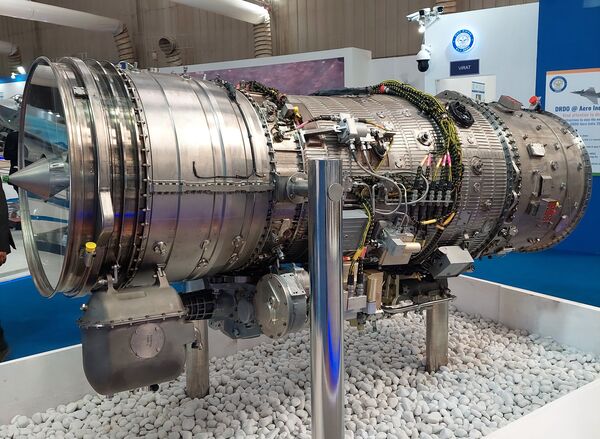
Pictured above is one of three converted GTRE Kaveri derivative engines displayed at Aero India 2023. (Janes/Prasobh Narayanan)
India's Gas Turbine Research Establishment (GTRE) – an agency under the state-owned Defence Research and Development Organisation (DRDO) – has completed high-altitude chamber tests of the indigenously built Kaveri derivative engine, a senior GTRE official told Janes at the Aero India 2023 show in Bangalore, which was held from 13 to 17 February.
The high-altitude tests were conducted successfully at the Central Institute of Aviation Motors (CIAM) in Russia, simulating an altitude of 13,000 m (42,651 ft), the official said.
The project to develop the Kaveri derivative engine started in 2019 and is being carried out in two phases.
Phase 1, which is ongoing, is the technology demonstrator stage and involves modifying and testing existing Kaveri engines to meet design requirements. To facilitate Phase 2, GTRE has received funding to manufacture five new Kaveri derivative prototype engines. GTRE has started work with Indian industry on initial production of these engines.
As part of the initial phase, GTRE has, to date, converted three Kaveri engines to the derivative version. Two of these engines are undergoing demonstrator tests.
The technology demonstrator engines have completed more than 140 hours of testing in total, including about 70 hours of ground testing at the GTRE test facility in Bangalore and 75 hours of altitude testing at CIAM, the GTRE official said.
The Kaveri derivative engine – also known as a ‘dry engine' – is a modified non-afterburning version of the two-spool low-bypass ratio Kaveri turbofan engine, earlier developed by GTRE.
Looking to read the full article?
Gain unlimited access to Janes news and more...







